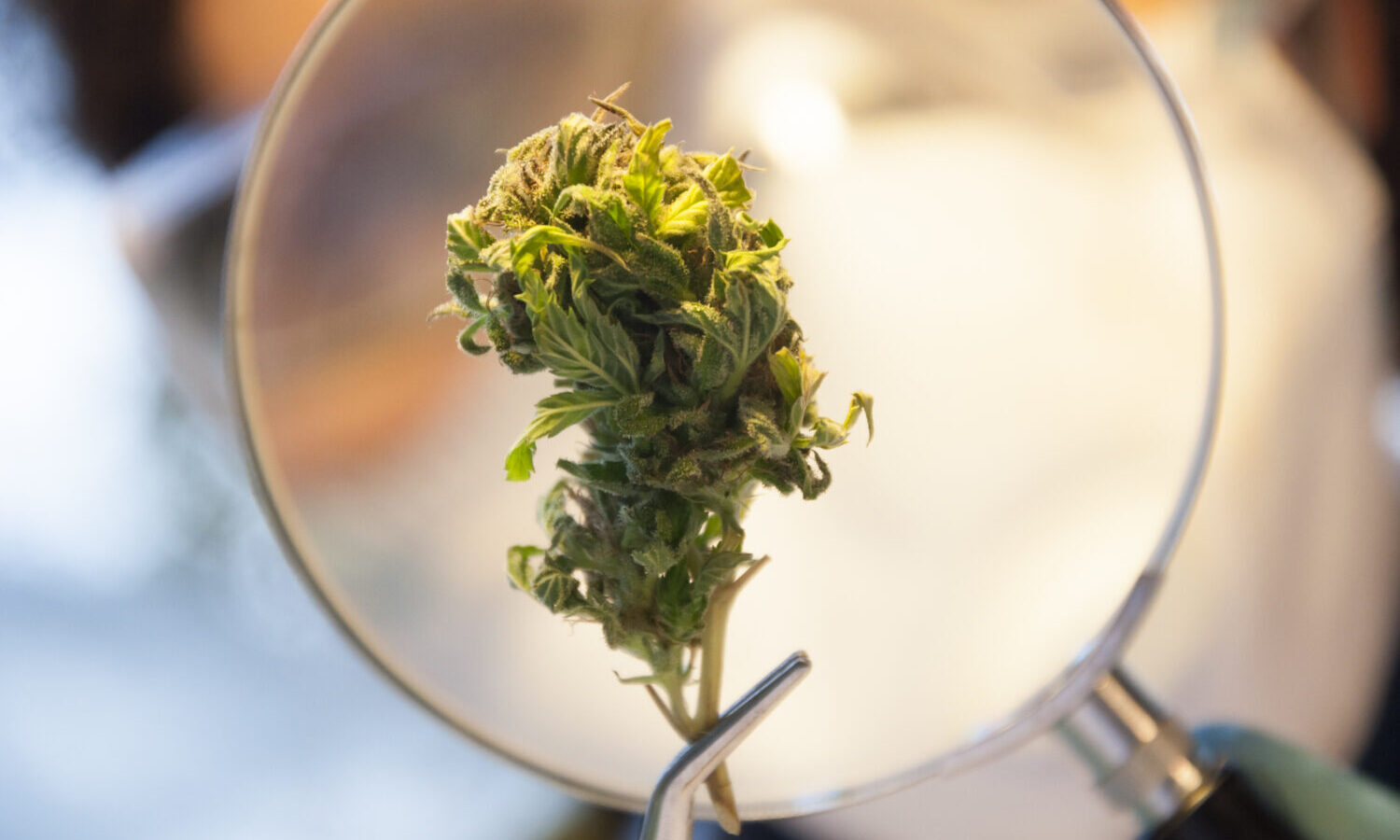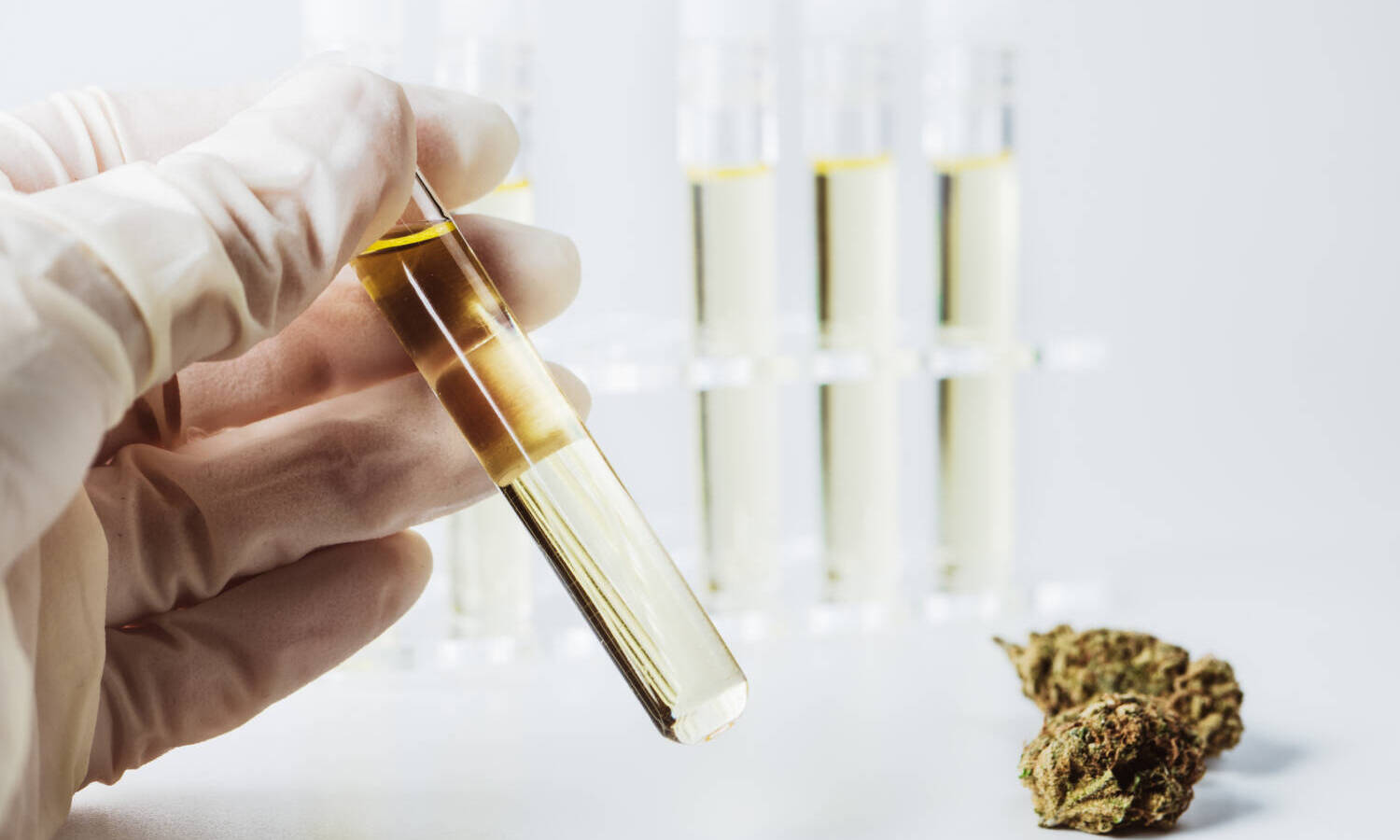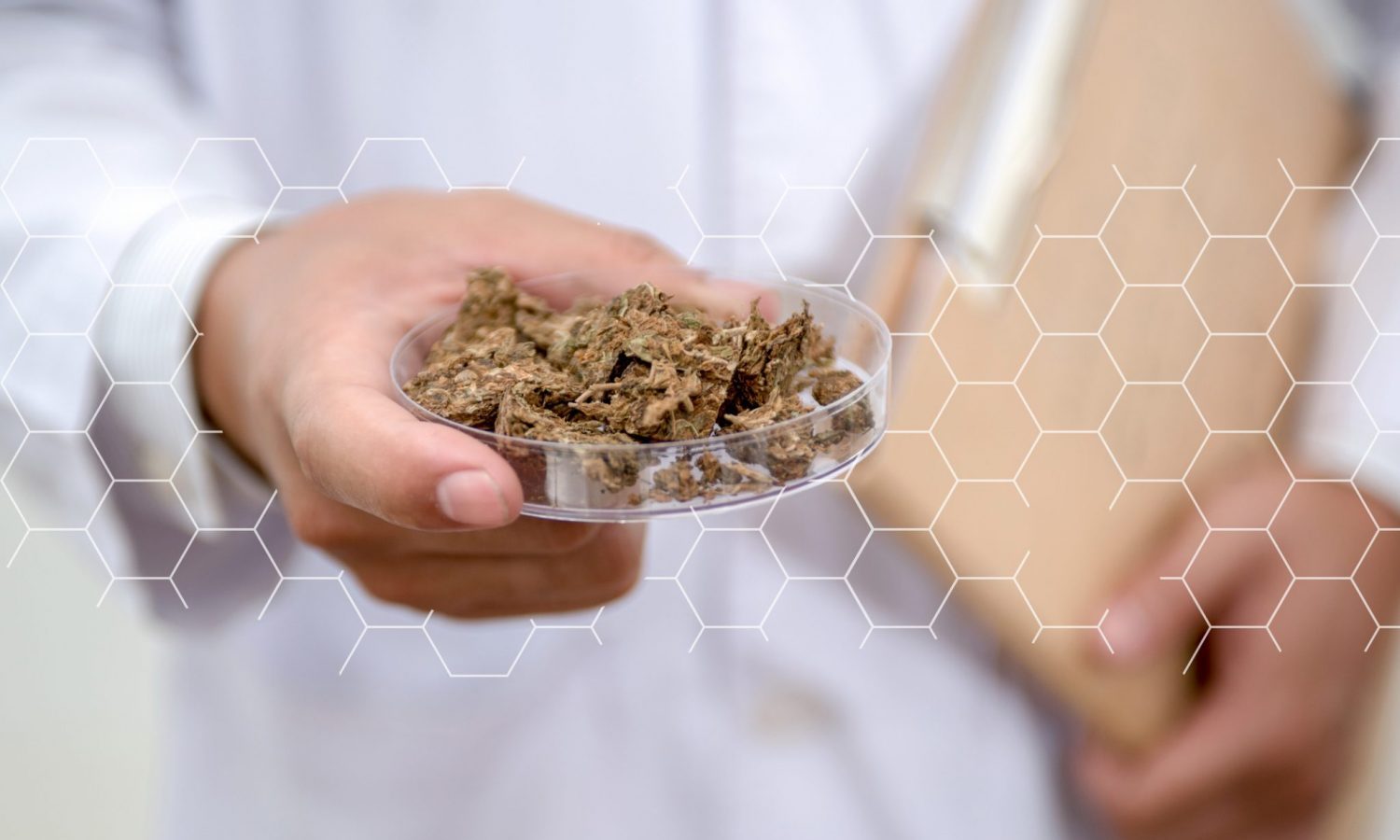Cultivation
Is Keeping Marijuana Illegal Putting People’s Health At Risk?

With marijuana still listed as a Schedule 1 drug, it simply is not possible to treat marijuana the same as other plants that are consumed by American citizens.
Some argue that marijuana is far less toxic than any drugs made in a lab, since it is a plant that comes from Mother Earth. While the sentiment and logic is in the right place, the sad truth is that our Earth, its soil and the way we grow plants in this modern times is a far cry from what one might consider “organic.”
Pollution, dangerous chemicals and haphazard growing techniques have led to all kinds of health issues in modern history. Organizations like the EPA and FDA have entire branches dedicated to more sustainable, healthy and safe ways of farming in this country. Unfortunately, these organizations are federally run, which means the multi-billion dollar cannabis industry goes relatively unregulated on a federal level in this regard. This loophole has led to some eye-opening recent discoveries that might be putting the health of cannabis users at risk.
A recent study from Arizona State University, published in the journal Environmental Health Perspectives, looked for contaminants in marijuana samples. Researchers examined all areas where cannabis is legal, and found a shocking amount of contaminants that should not be present on anything humans consume. Not only were dangerous contaminants found in many samples, but the sheer number is alarming.
“As of 18 May 2022, 36 states and the District of Columbia listed a total of 679 cannabis contaminants as regulated in medical or recreational cannabis,” according to the study’s findings. The list of contaminants, according to the report, included pesticides, inorganics, solvents, mycotoxins and other contaminants.
While the number of contaminants is certainly a huge red flag, if you think about how the marijuana industry has exploded recently, without strict federal guidelines, standards or regulation, it is not really all that shocking. After all, the marijuana industry is completely unique compared to other types of farming and plant maintenance.
If you have weeds in your lawn, there is a specific weed killer, or even weed killer fertilizer combination. This substance must first be tested and approved, and then becomes readily available on retail shelves near you. If you grow marijuana on the other hand, you have only word of mouth passed on through a game of telephone when it comes to controlling new pests, molds and diseases.
This trial and error way of growing is likely a contributing factor to all these contaminants. That, and a lack of Federal oversight of course.“Discrepancies between state and federal laws have left cannabis farmers without any pesticides approved for use on their crops—and as a result, some growers have taken the matter into their own hands, treating their plants with alarmingly high levels of pesticides intended for other uses,” according to The Atlantic.

Pesticides are not the only cause for health concerns when it comes to a world of unregulated marijuana farming. The soil where the marijuana grows can also have dangerous consequences on the consumer if left unchecked. Marijuana has the ability to absorb heavy metals from soils. These metals include carcinogenic and hazardous metals like lead, mercury, chromium and others. This rare trait in cannabis can sometimes be a great asset to the planet and farmers. Planting hemp in areas contaminated with certain toxic metals can help purify the soil.
But when it comes to growing marijuana for human consumption, this absorption can have potentially toxic consequences.
“The heavy-metal content of cannabis is not regulated; therefore, consumers could unknowingly be exposed to these toxic metals,” said Louis Bengyella, assistant research professor of plant science at Penn State. These findings are alarming when it comes to anyone who consumes cannabis, especially those who use it for medical purposes. “This is bad news for anyone who uses cannabis but is particularly problematic for cancer patients who use medical marijuana to treat the nausea and pain associated with their treatments,” Bengyella said.
According to the ASU study, “Cannabis use reports indicated usage in several patient populations susceptible to contamination toxicity, including cancer (44,318) and seizure (21,195) patients.” Marijuana is commonly used to treat side effects of cancer treatment, meaning many people consuming these potentially carcinogenic and otherwise harmful toxins are already battling cancer or other compromising conditions. This, if nothing else, should be enough to sound the alarm. “This study demonstrates an urgent need for a unified regulatory approach to mitigate the public health risk of cannabis contamination at a national level,” concluded the study’s authors.

In order to help reduce potentially harmful contaminants from reaching cannabis consumers, the authors of the study suggest that individual states and the Federal government must work together to set standards and policy. This, of course, is much easier said than done.
With marijuana still listed as a Schedule 1 drug, it simply is not possible to treat marijuana the same as other plants that are consumed by American citizens. Meanwhile, marijuana continues to be consumed in record quantities, and its contaminants might not be properly regulated until it is finally decriminalized.
Source: https://thefreshtoast.com/cannabis/is-keeping-marijuana-illegal-putting-peoples-health-at-risk/
Business
New Mexico cannabis operator fined, loses license for alleged BioTrack fraud

New Mexico regulators fined a cannabis operator nearly $300,000 and revoked its license after the company allegedly created fake reports in the state’s traceability software.
The New Mexico Cannabis Control Division (CCD) accused marijuana manufacturer and retailer Golden Roots of 11 violations, according to Albuquerque Business First.
Golden Roots operates the The Cannabis Revolution Dispensary.
The majority of the violations are related to the Albuquerque company’s improper use of BioTrack, which has been New Mexico’s track-and-trace vendor since 2015.
The CCD alleges Golden Roots reported marijuana production only two months after it had received its vertically integrated license, according to Albuquerque Business First.
Because cannabis takes longer than two months to be cultivated, the CCD was suspicious of the report.
After inspecting the company’s premises, the CCD alleged Golden Roots reported cultivation, transportation and sales in BioTrack but wasn’t able to provide officers who inspected the site evidence that the operator was cultivating cannabis.
In April, the CCD revoked Golden Roots’ license and issued a $10,000 fine, according to the news outlet.
The company requested a hearing, which the regulator scheduled for Sept. 1.
At the hearing, the CCD testified that the company’s dried-cannabis weights in BioTrack were suspicious because they didn’t seem to accurately reflect how much weight marijuana loses as it dries.
Company employees also poorly accounted for why they were making adjustments in the system of up to 24 pounds of cannabis, making comments such as “bad” or “mistake” in the software, Albuquerque Business First reported.
Golden Roots was fined $298,972.05 – the amount regulators allege the company made selling products that weren’t properly accounted for in BioTrack.
The CCD has been cracking down on cannabis operators accused of selling products procured from out-of-state or not grown legally:
- Regulators alleged in August that Albuquerque dispensary Sawmill Sweet Leaf sold out-of-state products and didn’t have a license for extraction.
- Paradise Exotics Distro lost its license in July after regulators alleged the company sold products made in California.
Golden Roots was the first alleged rulebreaker in New Mexico to be asked to pay a large fine.
Source: https://mjbizdaily.com/new-mexico-cannabis-operator-fined-loses-license-for-alleged-biotrack-fraud/
Business
Marijuana companies suing US attorney general in federal prohibition challenge

Four marijuana companies, including a multistate operator, have filed a lawsuit against U.S. Attorney General Merrick Garland in which they allege the federal MJ prohibition under the Controlled Substances Act is no longer constitutional.
According to the complaint, filed Thursday in U.S. District Court in Massachusetts, retailer Canna Provisions, Treevit delivery service CEO Gyasi Sellers, cultivator Wiseacre Farm and MSO Verano Holdings Corp. are all harmed by “the federal government’s unconstitutional ban on cultivating, manufacturing, distributing, or possessing intrastate marijuana.”
Verano is headquartered in Chicago but has operations in Massachusetts; the other three operators are based in Massachusetts.
The lawsuit seeks a ruling that the “Controlled Substances Act is unconstitutional as applied to the intrastate cultivation, manufacture, possession, and distribution of marijuana pursuant to state law.”
The companies want the case to go before the U.S. Supreme Court.
They hired prominent law firm Boies Schiller Flexner to represent them.
The New York-based firm’s principal is David Boies, whose former clients include Microsoft, former presidential candidate Al Gore and Elizabeth Holmes’ disgraced startup Theranos.
Similar challenges to the federal Controlled Substances Act (CSA) have failed.
One such challenge led to a landmark Supreme Court decision in 2005.
In Gonzalez vs. Raich, the highest court in the United States ruled in a 6-3 decision that the commerce clause of the U.S. Constitution gave Congress the power to outlaw marijuana federally, even though state laws allow the cultivation and sale of cannabis.
In the 18 years since that ruling, 23 states and the District of Columbia have legalized adult-use marijuana and the federal government has allowed a multibillion-dollar cannabis industry to thrive.
Since both Congress and the U.S. Department of Justice, currently headed by Garland, have declined to intervene in state-licensed marijuana markets, the key facts that led to the Supreme Court’s 2005 ruling “no longer apply,” Boies said in a statement Thursday.
“The Supreme Court has since made clear that the federal government lacks the authority to regulate purely intrastate commerce,” Boies said.
“Moreover, the facts on which those precedents are based are no longer true.”
Verano President Darren Weiss said in a statement the company is “prepared to bring this case all the way to the Supreme Court in order to align federal law with how Congress has acted for years.”
While the Biden administration’s push to reschedule marijuana would help solve marijuana operators’ federal tax woes, neither rescheduling nor modest Congressional reforms such as the SAFER Banking Act “solve the fundamental issue,” Weiss added.
“The application of the CSA to lawful state-run cannabis business is an unconstitutional overreach on state sovereignty that has led to decades of harm, failed businesses, lost jobs, and unsafe working conditions.”
Business
Alabama to make another attempt Dec. 1 to award medical cannabis licenses

Alabama regulators are targeting Dec. 1 to award the first batch of medical cannabis business licenses after the agency’s first two attempts were scrapped because of scoring errors and litigation.
The first licenses will be awarded to individual cultivators, delivery providers, processors, dispensaries and state testing labs, according to the Alabama Medical Cannabis Commission (AMCC).
Then, on Dec. 12, the AMCC will award licenses for vertically integrated operations, a designation set primarily for multistate operators.
Licenses are expected to be handed out 28 days after they have been awarded, so MMJ production could begin in early January, according to the Alabama Daily News.
That means MMJ products could be available for patients around early March, an AMCC spokesperson told the media outlet.
Regulators initially awarded 21 business licenses in June, only to void them after applicants alleged inconsistencies with how the applications were scored.
Then, in August, the state awarded 24 different licenses – 19 went to June recipients – only to reverse themselves again and scratch those licenses after spurned applicants filed lawsuits.
A state judge dismissed a lawsuit filed by Chicago-based MSO Verano Holdings Corp., but another lawsuit is pending.
Source: https://mjbizdaily.com/alabama-plans-to-award-medical-cannabis-licenses-dec-1/
-

 Business2 years ago
Business2 years agoPot Odor Does Not Justify Probable Cause for Vehicle Searches, Minnesota Court Affirms
-

 Business2 years ago
Business2 years agoNew Mexico cannabis operator fined, loses license for alleged BioTrack fraud
-

 Business2 years ago
Business2 years agoAlabama to make another attempt Dec. 1 to award medical cannabis licenses
-

 Business2 years ago
Business2 years agoWashington State Pays Out $9.4 Million in Refunds Relating to Drug Convictions
-

 Business2 years ago
Business2 years agoMarijuana companies suing US attorney general in federal prohibition challenge
-

 Business2 years ago
Business2 years agoLegal Marijuana Handed A Nothing Burger From NY State
-

 Business2 years ago
Business2 years agoCan Cannabis Help Seasonal Depression
-

 Blogs2 years ago
Blogs2 years agoCannabis Art Is Flourishing On Etsy











